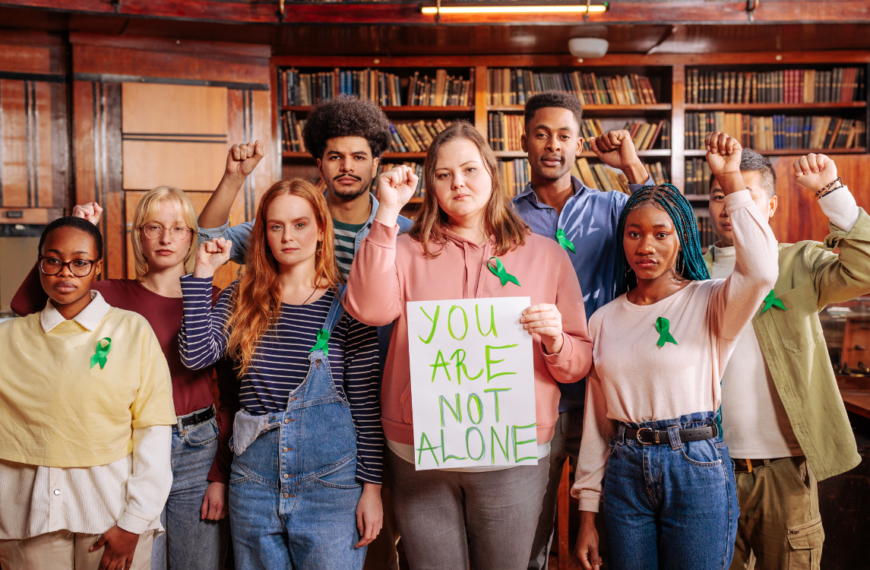Mental health challenges can often feel insurmountable, casting a shadow over daily life and making even the simplest tasks seem daunting. However, with the right support and resources, it is possible to transform struggle into strength. Psychiatric rehabilitation plays a crucial role in this journey, offering individuals the tools and guidance they need to reclaim their lives and thrive.
Understanding Psychiatric Rehabilitation
Psychiatric rehabilitation is a structured approach designed to support individuals facing severe mental health issues. It focuses on recovery and empowerment, helping individuals gain skills, build resilience, and foster independence. The ultimate goal is to enhance overall well-being and promote a fulfilling life, despite the challenges posed by mental health conditions.
The Initial Struggles
For many, the journey begins with a recognition of the struggle—whether it’s persistent feelings of sadness, anxiety, or an inability to cope with daily stressors. This recognition can be difficult, but it often marks the first step toward seeking help. Individuals may feel isolated, unsure of where to turn, or overwhelmed by the stigma surrounding mental health. It’s important to acknowledge that these feelings are valid and that support is available.
Taking the First Step
The transition into psychiatric rehabilitation often starts with an assessment. This process allows mental health professionals to understand individual needs, strengths, and goals. With this information, personalized treatment plans can be developed, encompassing a range of services such as therapy, skills training, and community support.
Taking this first step can be daunting, but it opens the door to a wealth of resources designed to help individuals move forward. Engaging in therapy provides a safe space to explore emotions, learn coping strategies, and develop a deeper understanding of oneself.
Building Life Skills
One of the most significant components of psychiatric rehabilitation is the emphasis on building life skills. Participants learn essential skills for daily living, such as budgeting, meal preparation, and time management. These practical skills not only foster independence but also build confidence. As individuals become more capable of managing their lives, they begin to see themselves in a new light—no longer defined solely by their struggles.
Fostering Social Connections
Social isolation is a common experience for those facing mental health challenges. Psychiatric rehabilitation programs create opportunities for individuals to connect with others who understand their journey. Group therapy sessions, support groups, and community activities provide safe environments to share experiences, offer mutual support, and develop friendships. These connections are vital; they remind individuals that they are not alone in their struggles and that support exists within their community.
Discovering Purpose
As individuals progress through psychiatric rehabilitation, many find themselves rediscovering their passions and interests. Whether it’s through volunteering, pursuing hobbies, or exploring educational opportunities, engaging in meaningful activities is a crucial part of the recovery process. This sense of purpose can reignite motivation and hope, reinforcing the belief that a fulfilling life is possible.
Embracing Resilience
Throughout the journey, resilience becomes a central theme. Each challenge faced and overcome adds to a growing sense of strength and capability. Individuals learn to navigate obstacles with newfound skills and perspectives, transforming past struggles into lessons that empower them. This shift from victimhood to resilience is a powerful testament to the human spirit’s capacity for growth and recovery.
Celebrating Success
Recovery is not a linear path; it is filled with ups and downs. However, celebrating small victories along the way is essential. Acknowledging progress, whether it’s managing anxiety more effectively or completing a challenging task, fosters a positive mindset. These celebrations serve as reminders of the journey taken and the strength gained.
Conclusion
The journey through psychiatric rehabilitation is one of transformation. It offers individuals a chance to move from struggle to strength, providing the tools and support needed to reclaim their lives. By focusing on personal growth, skill-building, and community connection, psychiatric rehabilitation empowers individuals to overcome challenges and thrive. In the end, it is a journey marked by resilience, hope, and the belief that a brighter future is within reach. Embracing this path can lead not only to personal healing but also to a more supportive and understanding community for all.


















